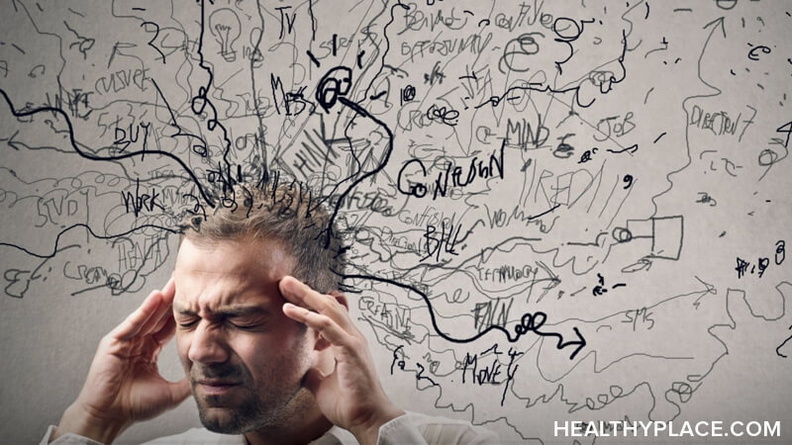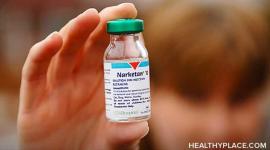Bipolar Depression with Anxiety: What Treatments Work

Bipolar depression with anxiety is a common combination. About 75 percent of people with bipolar II disorder have at least one anxiety disorder (American Psychiatric Association, 2013). Anxiety disorders like generalized anxiety disorder (GAD), social anxiety disorder, and panic disorder are the most common disorders that occur alongside bipolar II disorder; further, symptoms of these anxiety disorders are more likely to flare during a period of bipolar depression than an episode of mania. Given that bipolar depression with anxiety occurs quite frequently, it’s important to know more about these conditions, how this combination can affect people, and what treatments work.
Anxiety greatly influences someone’s experience with bipolar depression, including the symptoms they experience and how they respond to treatment. Both disorders worsen each other. Episodes of depression and anxiety are longer and more severe than when they occur on their own. The long-term outlook is worse, too, largely because it can be harder to treat comorbid anxiety and bipolar depression.
Bipolar Depression with Anxiety: Symptoms and Effects
Bipolar depression and anxiety bring out the worst in each other, making things very difficult if you are dealing with both conditions. As a result, you might experience symptoms like heightened worry and fear, anxiety attacks, and more severe depression.
These two co-occurring disorders create undesirable effects that interfere in life, such as:
- Avoiding people, situations, and events that increase anxiety
- Deepened depression due to isolation created by anxious avoidance
- A dark view of the world because of depression’s negative thought patterns
- Increased worry, fear, and agitation because of this dark worldview
- Increased likelihood of substance abuse
- Decreased quality of life
- Suicidal ideation, action
Anxiety disorders are difficult to live with. So, too, is bipolar depression. Unfortunately, when they occur together, treatment is more difficult than it is for each one separately. While difficult, it’s not impossible. Treatment is available, and with patience, you can find the right approach for your bipolar depression with anxiety.
Anxiety and Bipolar Depression: Treatment Options That Work
Each person dealing with bipolar depression and anxiety is unique. A treatment approach that works for one person might not work at all for another. While there isn’t a single treatment that works for everybody, there is something for almost everyone. It’s a matter of knowing and considering your options and working with your doctor to find the most effective approach to your mental health.
Effective treatment options for bipolar depression with anxiety include:
- Depression and anxiety medication, often a combination of different prescriptions
- Individual therapy
- Family therapy
Medication for Bipolar Depression with Anxiety
Medication is almost always the starting point. Your doctor might begin by prescribing a mood stabilizer. Next, they might prescribe an antidepressant to treat anxiety, although in bipolar disorder, antidepressants can trigger mania or induce a chronic state of depression. If you do use an antidepressant, your doctor will monitor you carefully and adjust your medications as needed.
As an alternative to antidepressants, your doctor may have you try benzodiazepines to treat your anxiety. Benzodiazepines don’t aggravate depression or mania, but they do carry the risk of tolerance and dependence. Finally, you might also receive a prescription for an atypical antipsychotic.
If one medication doesn’t work, you don’t have to feel defeated. Each class of medication used (from mood stabilizers to antipsychotics and everything in-between) has numerous medications within it. Finding the right combination is often a matter of trial and error.
You might want to talk to your doctor about side effects. Having both disorders can make you more sensitive to medication side effects, especially when the medication is new for you. Being aware and communicating with your doctor will help you find a medication that works without intolerable side effects.
Medication is almost always the first line of treatment for bipolar depression with anxiety. In addition to medication, therapy can be very effective in decreasing symptoms and improving lives.
Therapy for Anxiety and Bipolar Depression
Therapy, both individual and family, is helpful in bipolar depression and anxiety treatment. Individual therapy lets you address challenges and create coping skills. Family therapy does this, too, but it’s done as group therapy with the entire family present. Both help people improve the quality of their lives. Some types of therapy that have been shown to help include:
- Cognitive behavior therapy
- Relaxation training
- Interpersonal and Social Rhythm Therapy (tracking activities, and creating stable, reliable routines)
Medication and therapy are effective treatment approaches for managing bipolar depression with anxiety. While finding the right treatment isn’t always a quick, easy process, it is possible to do so. You can minimize the effects of these disorders and live a quality life.
APA Reference
Peterson, T.
(2021, December 28). Bipolar Depression with Anxiety: What Treatments Work, HealthyPlace. Retrieved
on 2026, January 14 from https://www.healthyplace.com/bipolar-disorder/bipolar-depression/bipolar-depression-with-anxiety-what-treatments-work


